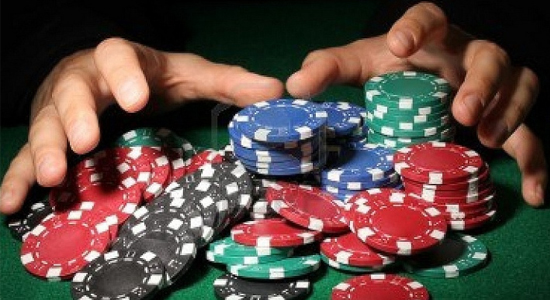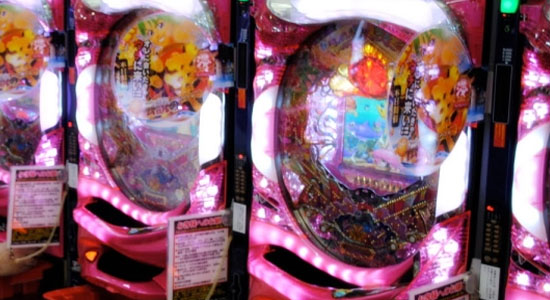The week in pictures: October 14th – 20th

The world last week wobbled between the tragic and the blessed, the diseased and the drunken, so lets look back at what went on
The tragedy of the numerous avalanche that struck Nepal last week has left 39 people dead so far and more are likely to be recovered in time. A mammoth rescue effort was swung into action as trekkers and climbers were slowly rescued by locals, guides, the emergency services and military. Over 400 people were taken to safety as the search continued throughout the weekend in this remote mountainous kingdom which is a favorite with altitude junkies.The successful negotiations in Nigeria, on the other hand, have been hailed as a major diplomatic victory for both sides with the upshot being that the schoolgirls so alarmingly kidnapped from their schools in the summer may well be back with their friends and families in the very near future ending their months of captivity. The negotiations had been rumored but were only confirmed after the successful arrangement of the truce last week.
There’s no sign of a truce on the street of the Mong Kok district of the modern metropolis that is Hong Kong with the authorities having sent in police to remove barricades and protestors from blocking major streets within the city. However successful they were initially by the end of the day many of the protestors and their obstructions had returned leaving the Chinese-run government with an ever decreasing number of options.
Which is probably true of the crew of the Russian submarine the Russians are strenuously denying has got itself into trouble off the coast of Sweden. The denial rang a bit hollow when the Swedes claimed to have picked up a Russian distress signal and launched a search and rescue operation involving hundreds of troops, boats and aircraft to find the submarine Moscow refused to admit ownership of perhaps gambling that it will yet slip away.
Here are some pictures of the gambling events that made the news last week, on GamblingResults.
1. Chukchansi Gold Resort & Casino was shut down due to an armed altercation involving different groups of Indian tribes.

2. Taj Mahal Casino’s Fate was the subject of another round of discussions. In order to save the gambling venue and more than a thousand jobs, owners and union members are analyzing all the options.

3. Can’t stand to be looked at while you’re receiving an over-sized check? A Chinese lottery winner used a disguise to make the handing out ceremony more… bearable.

4. Japan might get its casinos before the Tokyo Olympics, but the government remains committed to its mission: stopping locals from having any fun in there.
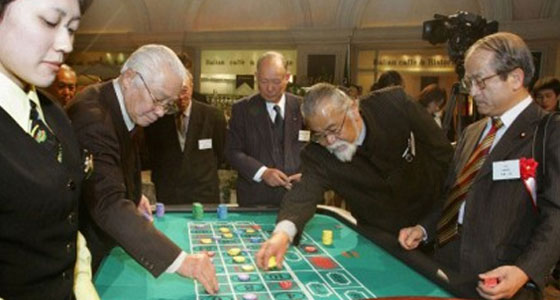
5. Swedish politicians took too long to ponder on what the country’s new gambling laws should look like – apart from… you know… liberal – so the EC is dragging them to European court.

6. Former WSOP champion Darren Woods is accused of opening 13 fake accounts on a poker site. Now there’s no need to jump to conclusions here, this doesn’t necessarily make him a fraudster; he could just be suffering from multiple personality disorder.

7. Researchers have picked the brains of problem gamblers, only to find that they don’t get much of a kick out of a normal day at the casino. Apparently, their brains are only satisfied once they’ve spent way too much money!
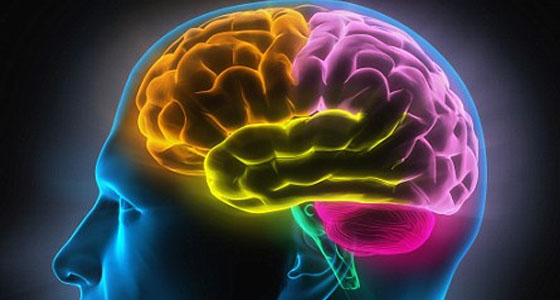
Meanwhile President Obama has appointed an Ebola Tsar to assist in combating the hysteria sweeping his country that might well explain why New Hampshire had a pumpkin festival turn into a full scale riot. Will this week be as crazy? Take a look at the daily news on GamblingResults and stay up to date.



The world last week wobbled between the tragic and the blessed, the diseased and the drunken, so lets look back at what went on
The tragedy of the numerous avalanche that struck Nepal last week has left 39 people dead so far and more are likely to be recovered in time. A mammoth rescue effort was swung into action as trekkers and climbers were slowly rescued by locals, guides, the emergency services and military. Over 400 people were taken to safety as the search continued throughout the weekend in this remote mountainous kingdom which is a favorite with altitude junkies.The successful negotiations in Nigeria, on the other hand, have been hailed as a major diplomatic victory for both sides with the upshot being that the schoolgirls so alarmingly kidnapped from their schools in the summer may well be back with their friends and families in the very near future ending their months of captivity. The negotiations had been rumored but were only confirmed after the successful arrangement of the truce last week.
There’s no sign of a truce on the street of the Mong Kok district of the modern metropolis that is Hong Kong with the authorities having sent in police to remove barricades and protestors from blocking major streets within the city. However successful they were initially by the end of the day many of the protestors and their obstructions had returned leaving the Chinese-run government with an ever decreasing number of options.
Which is probably true of the crew of the Russian submarine the Russians are strenuously denying has got itself into trouble off the coast of Sweden. The denial rang a bit hollow when the Swedes claimed to have picked up a Russian distress signal and launched a search and rescue operation involving hundreds of troops, boats and aircraft to find the submarine Moscow refused to admit ownership of perhaps gambling that it will yet slip away.
Here are some pictures of the gambling events that made the news last week, on GamblingResults.
1. Chukchansi Gold Resort & Casino was shut down due to an armed altercation involving different groups of Indian tribes.

2. Taj Mahal Casino’s Fate was the subject of another round of discussions. In order to save the gambling venue and more than a thousand jobs, owners and union members are analyzing all the options.

3. Can’t stand to be looked at while you’re receiving an over-sized check? A Chinese lottery winner used a disguise to make the handing out ceremony more… bearable.

4. Japan might get its casinos before the Tokyo Olympics, but the government remains committed to its mission: stopping locals from having any fun in there.

5. Swedish politicians took too long to ponder on what the country’s new gambling laws should look like – apart from… you know… liberal – so the EC is dragging them to European court.

6. Former WSOP champion Darren Woods is accused of opening 13 fake accounts on a poker site. Now there’s no need to jump to conclusions here, this doesn’t necessarily make him a fraudster; he could just be suffering from multiple personality disorder.

7. Researchers have picked the brains of problem gamblers, only to find that they don’t get much of a kick out of a normal day at the casino. Apparently, their brains are only satisfied once they’ve spent way too much money!

Meanwhile President Obama has appointed an Ebola Tsar to assist in combating the hysteria sweeping his country that might well explain why New Hampshire had a pumpkin festival turn into a full scale riot. Will this week be as crazy? Take a look at the daily news on GamblingResults and stay up to date.


Mind Games: How Your Brain Can Trick You into Becoming Addicted to Gambling
Scientists have come up with a new theory on what causes gamblers to get addicted to casino games.
Whether we’re talking about alcoholism, drug abuse or gambling, all forms of addiction are linked to biological alterations in the brain. For many years, scientists have studied these issues, coming up with several theories explaining the various chemical reactions that cause people to lose control of their habits and fall prey to addiction.
According to online gambling news, a recent study suggests that the brain’s opioid systems may respond differently in pathological gamblers, influencing their control, motivation, emotional behavior, as well as the way they respond to pain or stress.
The study was presented this weekend, at the European College of Neuropsychopharmacology Congress in Berlin.
MedicalDaily: Gambling Addicts’ Brains Don’t Have The Same Opioid Systems As Others
The study was conducted on 14 pathological gamblers and 15 healthy volunteers, whose opioid receptor levels were measures by researchers with positron emission tomography scans.
At first, the scans showed no difference between the two groups, but when the subjects were given an amphetamine tablet and researchers scanned their brains again, the pill caused a high known as an endorphin rush, revealing that gamblers weren’t able to release as many endorphins as healthy subjects. Participants then answered a questionnaire which revealed that gamblers experienced a lower feeling of euphoria.
Lead researcher Dr. Inge Mick explained: “From our work, we can say two things. Firstly, the brains of pathological gamblers respond differently to this stimulation than the brains of healthy volunteers. And secondly, it seems that pathological gamblers just don’t get the same feeling of euphoria as do healthy volunteers.”
“This may go some way to explaining why the gambling becomes an addiction,” Mick concluded.
Gambling is very popular among US citizens. Reports have shown that about 2 to 3% of the country’s population is addicted. The population spends up to $5 billion on casino games every year, although gambling laws ban sports betting and online casinos in most parts of the US.
BBC News: Gambling addiction linked to brain reward system
A recent study concluded that the “high” or feeling of euphoria that comes from addictive behavior is less obvious in the brains of problem gamblers. This means that, for them, being a lucky punter is not enough to get an “endorphin rush”, so they have to search harder and play more in order to get a kick out of it.
Human brains have a natural opioid system which controls pain, reward, as well as addictive behavior. London and Cambridge researchers scanned the brains of 30 volunteers – including problem gamblers – in order to find out more about how their reward systems respond.
The small study involved 14 problem gamblers and 15 healthy volunteers, and used scans to measure the level of endorphins released under the stimulation of an amphetamine tablet. Lead researcher Dr Inge Mick, from Imperial College London, explained that gambling addicts have to work harder in order to get the same feeling of euphoria as the average person.
The way the opioid system responds could be different in alcohol or cocaine addiction, she added, but the findings could help researchers come up with treatments for problem gamblers. Around 300,000 UK players – less than 1% of the population – are suffering from this health problem. They are treated with drugs such as naltrexone and nalmefene.
Dr Mark Griffiths, professor of gambling studies at Nottingham Trent University, said: “This is an interesting study which backs up what we already know from previous research. Gambling is a behavioral addiction which is influenced by biological, psychological and social factors.”
MedicalXpress: Pathological gambling runs in families
Researchers at the University of Iowa have confirmed that pathological gambling runs in the family. According to the study, first-degree relatives of gambling addicts are eight times more likely to develop this problem than people who don’t have this sort of issue in their family.
Donald W. Black, MD, professor of psychiatry in the UI Carver College of Medicine explained: “Our work clearly shows that pathological gambling runs in families at a rate higher than for many other behavioral and psychiatric disorders.
“I think clinicians and health care providers should be alerted to the fact that if they see a person with pathological gambling, that person is highly likely to have a close relative with similar or the same problem. That is a teaching moment and they should probably encourage the patient to let their relatives know that help is available.”
The study involved 95 pathological gamblers and 91 control subjects from Iowa, matched for age, sex, and level of education. Researchers also studied their first-degree relatives, totaling another 1,075 participants – parents, siblings, and children.
According to the results of the research, 11% of the gambling relatives suffered from pathological gambling themselves; the health issue was present in only 1% of the control relatives.
“People have always thought pathological gambling ran in families – anecdotal evidence certainly suggested it. But when you finally do a study like this, which is the largest of its kind, and come up with figures like this, it is quite striking,” says Black, who was lead author of the study.
Between 0.5 and 1.5% adults living in the US suffer from gambling addiction at some point during their lives.
Scientists have come up with a new theory on what causes gamblers to get addicted to casino games.
Whether we’re talking about alcoholism, drug abuse or gambling, all forms of addiction are linked to biological alterations in the brain. For many years, scientists have studied these issues, coming up with several theories explaining the various chemical reactions that cause people to lose control of their habits and fall prey to addiction.
According to online gambling news, a recent study suggests that the brain’s opioid systems may respond differently in pathological gamblers, influencing their control, motivation, emotional behavior, as well as the way they respond to pain or stress.
The study was presented this weekend, at the European College of Neuropsychopharmacology Congress in Berlin.
MedicalDaily: Gambling Addicts’ Brains Don’t Have The Same Opioid Systems As Others
The study was conducted on 14 pathological gamblers and 15 healthy volunteers, whose opioid receptor levels were measures by researchers with positron emission tomography scans.
At first, the scans showed no difference between the two groups, but when the subjects were given an amphetamine tablet and researchers scanned their brains again, the pill caused a high known as an endorphin rush, revealing that gamblers weren’t able to release as many endorphins as healthy subjects. Participants then answered a questionnaire which revealed that gamblers experienced a lower feeling of euphoria.
Lead researcher Dr. Inge Mick explained: “From our work, we can say two things. Firstly, the brains of pathological gamblers respond differently to this stimulation than the brains of healthy volunteers. And secondly, it seems that pathological gamblers just don’t get the same feeling of euphoria as do healthy volunteers.”
“This may go some way to explaining why the gambling becomes an addiction,” Mick concluded.
Gambling is very popular among US citizens. Reports have shown that about 2 to 3% of the country’s population is addicted. The population spends up to $5 billion on casino games every year, although gambling laws ban sports betting and online casinos in most parts of the US.
BBC News: Gambling addiction linked to brain reward system
A recent study concluded that the “high” or feeling of euphoria that comes from addictive behavior is less obvious in the brains of problem gamblers. This means that, for them, being a lucky punter is not enough to get an “endorphin rush”, so they have to search harder and play more in order to get a kick out of it.
Human brains have a natural opioid system which controls pain, reward, as well as addictive behavior. London and Cambridge researchers scanned the brains of 30 volunteers – including problem gamblers – in order to find out more about how their reward systems respond.
The small study involved 14 problem gamblers and 15 healthy volunteers, and used scans to measure the level of endorphins released under the stimulation of an amphetamine tablet. Lead researcher Dr Inge Mick, from Imperial College London, explained that gambling addicts have to work harder in order to get the same feeling of euphoria as the average person.
The way the opioid system responds could be different in alcohol or cocaine addiction, she added, but the findings could help researchers come up with treatments for problem gamblers. Around 300,000 UK players – less than 1% of the population – are suffering from this health problem. They are treated with drugs such as naltrexone and nalmefene.
Dr Mark Griffiths, professor of gambling studies at Nottingham Trent University, said: “This is an interesting study which backs up what we already know from previous research. Gambling is a behavioral addiction which is influenced by biological, psychological and social factors.”
MedicalXpress: Pathological gambling runs in families
Researchers at the University of Iowa have confirmed that pathological gambling runs in the family. According to the study, first-degree relatives of gambling addicts are eight times more likely to develop this problem than people who don’t have this sort of issue in their family.
Donald W. Black, MD, professor of psychiatry in the UI Carver College of Medicine explained: “Our work clearly shows that pathological gambling runs in families at a rate higher than for many other behavioral and psychiatric disorders.
“I think clinicians and health care providers should be alerted to the fact that if they see a person with pathological gambling, that person is highly likely to have a close relative with similar or the same problem. That is a teaching moment and they should probably encourage the patient to let their relatives know that help is available.”
The study involved 95 pathological gamblers and 91 control subjects from Iowa, matched for age, sex, and level of education. Researchers also studied their first-degree relatives, totaling another 1,075 participants – parents, siblings, and children.
According to the results of the research, 11% of the gambling relatives suffered from pathological gambling themselves; the health issue was present in only 1% of the control relatives.
“People have always thought pathological gambling ran in families – anecdotal evidence certainly suggested it. But when you finally do a study like this, which is the largest of its kind, and come up with figures like this, it is quite striking,” says Black, who was lead author of the study.
Between 0.5 and 1.5% adults living in the US suffer from gambling addiction at some point during their lives.
Former Gambling Addict Tells How He Lost GBP200,000 on Betting Machines
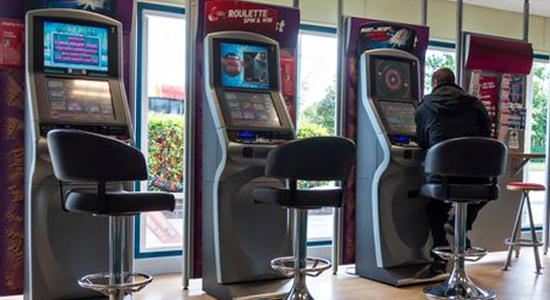
While focusing on how to increase taxes on remote gambling, officials seem to have forgotten about the more pressing issue of FOBTs.
UK’s problems with fixed-odds betting terminals are at the center of attention again. The latest gambling news have brought the issue up again, by publishing the story of a former gambling addict who revealed how he spent GBP200,000 on betting machines, over the past ten years.
Meanwhile, the government is having difficulty implementing its changes to the current remote gambling laws after online operators have challenged the decision in court, but the FOBT issue has not been handled yet. Politicians have talked about reducing the maximum stake from GBP100 to GBP50, but for now online casinos and sportsbooks seem to be a priority.
Other amendments granting local councils the power to deny betting shop applications were announced earlier this year, but they haven’t been implemented yet.
The Mirror: Gambling addict blew £200,000 in ten years after becoming hooked on fixed odds betting terminals
In an interview with The Mirror, a former gambling addict tells reporters how he blew GBP200,000 on FOBTs. Simon Perfitt had a good job, but in ten years he went from a GBP50,000 salary to living on benefits after becoming hooked on the controversial machines. He blew up to GBP3,000 per day, he told reporters.
Simon says he didn’t start betting until de has 45, but it only took him ten years to lose all that money. In 2001, the businessman from Dudley was living a lavish lifestyle. He could afford it, thanks to his well-paid in e-commerce. He had also just moved in with his girlfriend. But after becoming addicted to gambling machines – he liked to play roulette – he lost all of his hard-earned money.
“These fixed odds betting terminals destroy you. I became addicted instantly after a friend who played the machines asked me to pop into a bookies one day and have a go. After that, all I thought about all day was gambling.”
“I worked to go on these machines and could spend up to 12 hours a day in there. I used to get up early and go in to the bookies before I went to work, at lunchtime and would go straight into one after work. Within 10 years I had lost GBP200,000, a relationship and my home as well. My whole personality changed. I became very introverted, made excuses not to see family and friends,” he told reporters.
FOBTs have been dubbed the crack cocaine of gambling and have been causing players to lose fortunes. These betting machines bring bookmakers GBP1.5 billion in profits every year.
The Telegraph: Councils to get power to ban new betting shops in blow for gaming industry
The Government said it would give local councils the power to stop new betting shops from opening in their towns. The administration intends to create a new planning class for betting shops, which would allow councils to monitor new applications more closely, as well as to veto them.
The measure is designed to limit concerns over the damaging effects of gambling machines, especially fixed-odds betting terminals, found inside most betting shops. Critics refer to them as “crack cocaine” gambling machines because of their addictive nature.
The industry is expected to oppose resistance to such measures. William Hill has already announced its intentions to close more than 100 betting shops, blaming it in the increased taxes on FOBTs. But even so, the gambling machines are the highly profitable and account for a large part of the land-based betting sector’s profits.
Sources cited by the Telegraph said the new gambling laws would also force companies to comply with protection measures, including promotions and window displays.
The Guardian: Maximum cash stake on fixed-odds betting terminals to be restricted
After anti-betting groups have voiced complaints over the damaging effect of FOBTs, the government said it would impose a GBP50 limit on the maximum wager allowed on these machines, instead of the higher GBP100 stake allowed at present.
The new rules would require anyone who wants to bet more than GBP50 at a time to inform staff. Gamblers would be given the alternative to open an online account, where their spending history can be tracked. Campaigners are still unsatisfied with the announced measures, claiming that ministers have “ducked the big issue” by not cutting the maximum bet in all circumstances.
Matt Zarb-Cousin of the Campaign for Fairer Gambling told reporters: “Staff intervention does not mean player protection. We know from academic studies that employee training is the most commonly tried method to control problem gambling and the least effective. Why would staff stop people from putting money into FOBTs when their pay depends on it?”
On the other hand, the Association of British Bookmakers said new measures would “restrict growth for the sector and mean hundreds of shops and thousands of jobs are now at risk”.
In an assessment released by the Department for Culture, Media and Sport, officials argued that “account-based play allows players access to up-to-date information which can reduce biased or irrational gambling… and help people maintain control.”
“Making payments over the counter rather than on to the machine directly can provide opportunities for intervention which may give players a reality check,” it added.

While focusing on how to increase taxes on remote gambling, officials seem to have forgotten about the more pressing issue of FOBTs.
UK’s problems with fixed-odds betting terminals are at the center of attention again. The latest gambling news have brought the issue up again, by publishing the story of a former gambling addict who revealed how he spent GBP200,000 on betting machines, over the past ten years.
Meanwhile, the government is having difficulty implementing its changes to the current remote gambling laws after online operators have challenged the decision in court, but the FOBT issue has not been handled yet. Politicians have talked about reducing the maximum stake from GBP100 to GBP50, but for now online casinos and sportsbooks seem to be a priority.
Other amendments granting local councils the power to deny betting shop applications were announced earlier this year, but they haven’t been implemented yet.
The Mirror: Gambling addict blew £200,000 in ten years after becoming hooked on fixed odds betting terminals
In an interview with The Mirror, a former gambling addict tells reporters how he blew GBP200,000 on FOBTs. Simon Perfitt had a good job, but in ten years he went from a GBP50,000 salary to living on benefits after becoming hooked on the controversial machines. He blew up to GBP3,000 per day, he told reporters.
Simon says he didn’t start betting until de has 45, but it only took him ten years to lose all that money. In 2001, the businessman from Dudley was living a lavish lifestyle. He could afford it, thanks to his well-paid in e-commerce. He had also just moved in with his girlfriend. But after becoming addicted to gambling machines – he liked to play roulette – he lost all of his hard-earned money.
“These fixed odds betting terminals destroy you. I became addicted instantly after a friend who played the machines asked me to pop into a bookies one day and have a go. After that, all I thought about all day was gambling.”
“I worked to go on these machines and could spend up to 12 hours a day in there. I used to get up early and go in to the bookies before I went to work, at lunchtime and would go straight into one after work. Within 10 years I had lost GBP200,000, a relationship and my home as well. My whole personality changed. I became very introverted, made excuses not to see family and friends,” he told reporters.
FOBTs have been dubbed the crack cocaine of gambling and have been causing players to lose fortunes. These betting machines bring bookmakers GBP1.5 billion in profits every year.
The Telegraph: Councils to get power to ban new betting shops in blow for gaming industry
The Government said it would give local councils the power to stop new betting shops from opening in their towns. The administration intends to create a new planning class for betting shops, which would allow councils to monitor new applications more closely, as well as to veto them.
The measure is designed to limit concerns over the damaging effects of gambling machines, especially fixed-odds betting terminals, found inside most betting shops. Critics refer to them as “crack cocaine” gambling machines because of their addictive nature.
The industry is expected to oppose resistance to such measures. William Hill has already announced its intentions to close more than 100 betting shops, blaming it in the increased taxes on FOBTs. But even so, the gambling machines are the highly profitable and account for a large part of the land-based betting sector’s profits.
Sources cited by the Telegraph said the new gambling laws would also force companies to comply with protection measures, including promotions and window displays.
The Guardian: Maximum cash stake on fixed-odds betting terminals to be restricted
After anti-betting groups have voiced complaints over the damaging effect of FOBTs, the government said it would impose a GBP50 limit on the maximum wager allowed on these machines, instead of the higher GBP100 stake allowed at present.
The new rules would require anyone who wants to bet more than GBP50 at a time to inform staff. Gamblers would be given the alternative to open an online account, where their spending history can be tracked. Campaigners are still unsatisfied with the announced measures, claiming that ministers have “ducked the big issue” by not cutting the maximum bet in all circumstances.
Matt Zarb-Cousin of the Campaign for Fairer Gambling told reporters: “Staff intervention does not mean player protection. We know from academic studies that employee training is the most commonly tried method to control problem gambling and the least effective. Why would staff stop people from putting money into FOBTs when their pay depends on it?”
On the other hand, the Association of British Bookmakers said new measures would “restrict growth for the sector and mean hundreds of shops and thousands of jobs are now at risk”.
In an assessment released by the Department for Culture, Media and Sport, officials argued that “account-based play allows players access to up-to-date information which can reduce biased or irrational gambling… and help people maintain control.”
“Making payments over the counter rather than on to the machine directly can provide opportunities for intervention which may give players a reality check,” it added.
Ben Affleck Digs Up His Gambling Past and Admits to Counting Cards in Las Vegas
Just when everyone thought Ben Affleck’s blackjack adventures were long forgotten, the actor admitted to counting cards.
Until recently, the Hollywood movie star refused to comment on rumors that suggested he was addicted to gambling. Now Ben Affleck says he wants to clear things up once and for all, offering to talk about why he was kicked out of Hard Rock Casino in Las Vegas, how much he gambles and what his wife Jennifer Garner has to say about it.
Yes, he counted cards when he was at the casino, he admitted; but apart from blackjack, he is not interested in betting on sports scores and doesn’t gamble “at all”. All news about him being addicted to casino games were made up, the actor added. He also denied rumors about his wife threatening to leave him because of his habit of playing blackjack.
The actor is now at the center of attention in the latest online blackjack news, after openly talking about how casinos refuse to allow good players to sit down at the blackjack table.
Daily Mail: ‘That’s all bulls***!’ Ben Affleck says wife Jennifer Garner has no plans to leave him over his gambling
Ben Affleck has recently denied what several tabloids and newspapers wrote months ago, that his wife Jennifer Gardner was at the end of her tether after he was kicked out of a Las Vegas casino for counting cards.
In a recent interview with Details magazine, the actor fumed: “See, that’s tabloid s***. That’s all bulls***. They completely lie.”
At the end of April, Ben Affleck was caught counting cards at a Las Vegas blackjack table, and tabloids suggested Jennifer was considering leaving him because he was gambling too much. However, the new Batman has assured fans that his wife is neither unhappy with their marriage of nine years, nor about to divorce him.
ABC News: Ben Affleck Admits to Counting Cards in a Casino
Referring to the incident that took place at the Hard Rock Hotel and Casino in Las Vegas earlier in April, when Ben Affleck was banned from the blackjack table, the 42 year-old actor had no trouble admitting that he counted cards while playing the game.
“That is true,” he told Details magazine. “I took some time to learn the game and became a decent blackjack player. And once I became decent, the casinos asked me not to play blackjack.”
“I mean the fact that being good at the game is against the rules at a casino should tell you something about a casino,” he continued. “There’s a lot of hospitality, backslapping, when they think you’re gonna come in and dump money, and if they think you might leave with some money, it’s like, ‘You know what? Why don’t you try craps or roulette?”
The actor also denied rumors suggesting he was addicted to gambling: “I get to correct the impression that there’s something wrong with it or that it demonstrates some, like, compulsive activity.”
“I don’t bet on football games, and I don’t gamble at all, really, outside of that. But I knew with blackjack that there’s a way you can improve your odds. And so I started trying to learn. And then I just got to a point in my life where I’m like, ‘If I’m going to do something, I’m going to try and do it really well.’”
While counting cards is not illegal, casinos frown upon it because the strategy helps players lower the house edge and significantly increases their chances of winning.
“I will say this: There were a number of casinos that said, ‘Hey, you can’t play blackjack here. We know you count cards. But, you know, you’re welcome to come, do whatever you want, see a show, have dinner. We’ll comp ya. Play roulette, we know you don’t play craps, but hang out, we still want your presence and business.’”
People: Ben Affleck Sets the Record Straight About Gambling Rumors
After it was reported that Ben Affleck was a problem gambler and that his wife Jennifer Garner was considering leaving him because of his bad habit, the Hollywood actor is not holding back in expressing how he feels about tabloids and the rumors they spread.
The movie star is determined to set the record straight about stories claiming that his wife Jennifer Garner was fed up with his gambling, after Affleck was reportedly banned from the Hard Rock Hotel & Casino in Las Vegas.
“That’s tabloid s–––. That’s all bulls–––,” he told Details. “They completely lie … My only hope is that people with any common sense recognize that those stories are false.”
The 42-year-old actor clarified that he was not banned from the venue, but simply asked to refrain from playing blackjack, a game he became skilled at.
“I wish I could say they were afraid of me in every capacity. But they only said, ‘No blackjack.’ I mean, the fact that being good at the game is against the rules at the casinos should tell you something about casinos,” he added.
Furthermore, Affleck insisted that blackjack is the only casino game he plays: “I had always liked blackjack. I don’t play any other games of chance. I don’t bet on football games, and I don’t gamble at all, really, outside of that.”
Just when everyone thought Ben Affleck’s blackjack adventures were long forgotten, the actor admitted to counting cards.
Until recently, the Hollywood movie star refused to comment on rumors that suggested he was addicted to gambling. Now Ben Affleck says he wants to clear things up once and for all, offering to talk about why he was kicked out of Hard Rock Casino in Las Vegas, how much he gambles and what his wife Jennifer Garner has to say about it.
Yes, he counted cards when he was at the casino, he admitted; but apart from blackjack, he is not interested in betting on sports scores and doesn’t gamble “at all”. All news about him being addicted to casino games were made up, the actor added. He also denied rumors about his wife threatening to leave him because of his habit of playing blackjack.
The actor is now at the center of attention in the latest online blackjack news, after openly talking about how casinos refuse to allow good players to sit down at the blackjack table.
Daily Mail: ‘That’s all bulls***!’ Ben Affleck says wife Jennifer Garner has no plans to leave him over his gambling
Ben Affleck has recently denied what several tabloids and newspapers wrote months ago, that his wife Jennifer Gardner was at the end of her tether after he was kicked out of a Las Vegas casino for counting cards.
In a recent interview with Details magazine, the actor fumed: “See, that’s tabloid s***. That’s all bulls***. They completely lie.”
At the end of April, Ben Affleck was caught counting cards at a Las Vegas blackjack table, and tabloids suggested Jennifer was considering leaving him because he was gambling too much. However, the new Batman has assured fans that his wife is neither unhappy with their marriage of nine years, nor about to divorce him.
ABC News: Ben Affleck Admits to Counting Cards in a Casino
Referring to the incident that took place at the Hard Rock Hotel and Casino in Las Vegas earlier in April, when Ben Affleck was banned from the blackjack table, the 42 year-old actor had no trouble admitting that he counted cards while playing the game.
“That is true,” he told Details magazine. “I took some time to learn the game and became a decent blackjack player. And once I became decent, the casinos asked me not to play blackjack.”
“I mean the fact that being good at the game is against the rules at a casino should tell you something about a casino,” he continued. “There’s a lot of hospitality, backslapping, when they think you’re gonna come in and dump money, and if they think you might leave with some money, it’s like, ‘You know what? Why don’t you try craps or roulette?”
The actor also denied rumors suggesting he was addicted to gambling: “I get to correct the impression that there’s something wrong with it or that it demonstrates some, like, compulsive activity.”
“I don’t bet on football games, and I don’t gamble at all, really, outside of that. But I knew with blackjack that there’s a way you can improve your odds. And so I started trying to learn. And then I just got to a point in my life where I’m like, ‘If I’m going to do something, I’m going to try and do it really well.’”
While counting cards is not illegal, casinos frown upon it because the strategy helps players lower the house edge and significantly increases their chances of winning.
“I will say this: There were a number of casinos that said, ‘Hey, you can’t play blackjack here. We know you count cards. But, you know, you’re welcome to come, do whatever you want, see a show, have dinner. We’ll comp ya. Play roulette, we know you don’t play craps, but hang out, we still want your presence and business.’”
People: Ben Affleck Sets the Record Straight About Gambling Rumors
After it was reported that Ben Affleck was a problem gambler and that his wife Jennifer Garner was considering leaving him because of his bad habit, the Hollywood actor is not holding back in expressing how he feels about tabloids and the rumors they spread.
The movie star is determined to set the record straight about stories claiming that his wife Jennifer Garner was fed up with his gambling, after Affleck was reportedly banned from the Hard Rock Hotel & Casino in Las Vegas.
“That’s tabloid s–––. That’s all bulls–––,” he told Details. “They completely lie … My only hope is that people with any common sense recognize that those stories are false.”
The 42-year-old actor clarified that he was not banned from the venue, but simply asked to refrain from playing blackjack, a game he became skilled at.
“I wish I could say they were afraid of me in every capacity. But they only said, ‘No blackjack.’ I mean, the fact that being good at the game is against the rules at the casinos should tell you something about casinos,” he added.
Furthermore, Affleck insisted that blackjack is the only casino game he plays: “I had always liked blackjack. I don’t play any other games of chance. I don’t bet on football games, and I don’t gamble at all, really, outside of that.”
Cause for Concern: Recent Survey Reveals the Level of Gambling Addiction in Japan
The results of a recent study on gambling addiction are causing people to worry about the imminent legalization of casinos in Japan. According to the survey, almost 5% of Japanese adults are already problem gamblers, despite casino games being forbidden in the country.
The latest gambling news have revealed that, compared to the majority of other nations, this rate is five times bigger.Instead of popular games such as roulette, slot machines, or even blackjack, Japan’s favorite is pachinko. There are a number of pachinko parlors across the country, and they are all extremely popular.
In addition, the study showed a rising trend in Internet and alcohol addiction among Japanese adults. The survey was headed by Susumu Higuchi, a leading expert on addiction. Higuchi is worried that legalizing casinos would make things worse. “If something new becomes available, addiction will only rise,” he told reporters.
Yahoo News: Gambling, IT, booze addictions rife in Japan: studyThe study brought to light one of the most worrying gambling facts, that 5% of adults living in Japan have lost control over their gambling habits. What separates the Japanese from other developed, industrialized nations is the low public awareness regarding the dangers of gambling addiction.
A campaigner who has a significant amount of experience in the field said that while others prefer to talk openly about this issue and try to prevent it or to at least reduce its negative impact, things are different in Japan, where no one wants to confront the reality of problem gambling.
According to researchers, roughly 5.36 million people in Japan are most probably pathological gamblers. That number represents 4.8% of the country’s adult population, all of them players who cannot resist the impulse to spend their money on wagers.
While casinos are still illegal at the moment, there are a number of pachinko parlors and other gambling establishments to choose from.
Wall Street Journal: Five Million Japanese Have Gambling Problem, Says Ministry Study
According to a group of researchers working under the Ministry of Health, Labor and Welfare, around 5.36 million people living in Japan could be suffering from a pathological gambling problem. The number represents 4.8% of the country’s adult population.
The study was funded by the ministry and the team of researchers was led by Susumu Higuchi of the Kurihama Medical and Addiction Center. In 2013, 4,153 randomly chosen adults living in Japan participated in the survey that found 8.7% of men and 1.8% of women show signs that they could be addicted to gambling.
Everyone participating in the survey was told to describe their gambling habits. They were asked to talk about activities such as betting on horse racing, online casino games, slot machines, boat racing, as well as pachinko. The latter is a very popular pinball-like game which can be played in parlors across the country.
The report also revealed that, compared to other developed countries, Japan had a higher percentage of pathological gamblers.
The Asahi Shimbun: Millions of Japanese hooked on gambling, survey shows
Recent news have revealed that an estimated 5.36 million Japanese adults – representing 4.5% of the nation’s adult population – are suspected of being addicted to gambling. About 4.38 million adult males and 980,000 female adults are habitual gamblers. The results are similar to those found in 2008, at the time of the last study.
The researchers asked subjects to answer “yes” or “no” to a number of questions or affirmations such as “I have gambled more than what I initially intended to do”. Those who answered “yes” to most of them are suspected of being pathological gamblers, as their replies indicate they cannot resist the temptation of playing for money.
Compared to other countries where similar studies have been carried out, the ratio for both men and women was particularly high in Japan. For example, in Switzerland only 0.5% of the total adult population was suspected of having a gambling problem; in the Us state of Louisiana, the percentage was a bit higher, at 1.58%, while in Hong Kong it reached 1.8%. Still, none of these come close to Japan’s 4.8%.
Susumu Higuchi, one of the researchers involved in the study told reporters: “On a global basis, Japan has one of the highest ratios of pathological gamblers as gambling devices such as pachinko and slot machine games are ubiquitous.”
Now the media believes that the study could impact the administration’s plan for economic growth, which includes proposals to allow casino resorts in certain parts of Japan.
The results of a recent study on gambling addiction are causing people to worry about the imminent legalization of casinos in Japan. According to the survey, almost 5% of Japanese adults are already problem gamblers, despite casino games being forbidden in the country.
The latest gambling news have revealed that, compared to the majority of other nations, this rate is five times bigger.Instead of popular games such as roulette, slot machines, or even blackjack, Japan’s favorite is pachinko. There are a number of pachinko parlors across the country, and they are all extremely popular.
In addition, the study showed a rising trend in Internet and alcohol addiction among Japanese adults. The survey was headed by Susumu Higuchi, a leading expert on addiction. Higuchi is worried that legalizing casinos would make things worse. “If something new becomes available, addiction will only rise,” he told reporters.
Yahoo News: Gambling, IT, booze addictions rife in Japan: studyThe study brought to light one of the most worrying gambling facts, that 5% of adults living in Japan have lost control over their gambling habits. What separates the Japanese from other developed, industrialized nations is the low public awareness regarding the dangers of gambling addiction.
A campaigner who has a significant amount of experience in the field said that while others prefer to talk openly about this issue and try to prevent it or to at least reduce its negative impact, things are different in Japan, where no one wants to confront the reality of problem gambling.
According to researchers, roughly 5.36 million people in Japan are most probably pathological gamblers. That number represents 4.8% of the country’s adult population, all of them players who cannot resist the impulse to spend their money on wagers.
While casinos are still illegal at the moment, there are a number of pachinko parlors and other gambling establishments to choose from.
Wall Street Journal: Five Million Japanese Have Gambling Problem, Says Ministry Study
According to a group of researchers working under the Ministry of Health, Labor and Welfare, around 5.36 million people living in Japan could be suffering from a pathological gambling problem. The number represents 4.8% of the country’s adult population.
The study was funded by the ministry and the team of researchers was led by Susumu Higuchi of the Kurihama Medical and Addiction Center. In 2013, 4,153 randomly chosen adults living in Japan participated in the survey that found 8.7% of men and 1.8% of women show signs that they could be addicted to gambling.
Everyone participating in the survey was told to describe their gambling habits. They were asked to talk about activities such as betting on horse racing, online casino games, slot machines, boat racing, as well as pachinko. The latter is a very popular pinball-like game which can be played in parlors across the country.
The report also revealed that, compared to other developed countries, Japan had a higher percentage of pathological gamblers.
The Asahi Shimbun: Millions of Japanese hooked on gambling, survey shows
Recent news have revealed that an estimated 5.36 million Japanese adults – representing 4.5% of the nation’s adult population – are suspected of being addicted to gambling. About 4.38 million adult males and 980,000 female adults are habitual gamblers. The results are similar to those found in 2008, at the time of the last study.
The researchers asked subjects to answer “yes” or “no” to a number of questions or affirmations such as “I have gambled more than what I initially intended to do”. Those who answered “yes” to most of them are suspected of being pathological gamblers, as their replies indicate they cannot resist the temptation of playing for money.
Compared to other countries where similar studies have been carried out, the ratio for both men and women was particularly high in Japan. For example, in Switzerland only 0.5% of the total adult population was suspected of having a gambling problem; in the Us state of Louisiana, the percentage was a bit higher, at 1.58%, while in Hong Kong it reached 1.8%. Still, none of these come close to Japan’s 4.8%.
Susumu Higuchi, one of the researchers involved in the study told reporters: “On a global basis, Japan has one of the highest ratios of pathological gamblers as gambling devices such as pachinko and slot machine games are ubiquitous.”
Now the media believes that the study could impact the administration’s plan for economic growth, which includes proposals to allow casino resorts in certain parts of Japan.















